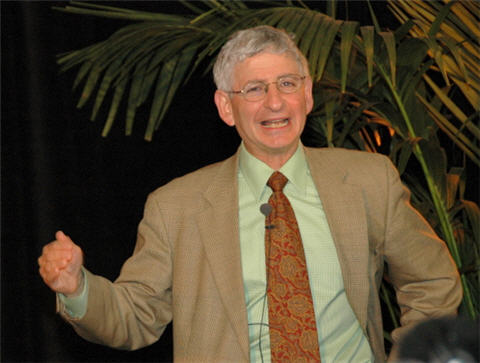Business
Supernova 2007 notes: Irving Waldasky-Berger on complex systems
Irving Waldasky-Berger, the recently retired technology strategist for IBM, addresses where the software and hardware industries are going and the challenges they face at Supernova 2007. Here are my notes....

Irving Waldasky-Berger, the recently retired technology strategist for IBM, addresses where the software and hardware industries are going and the challenges they face at Supernova 2007. Here are my notes.... (extensive paraphrasing):
Let's imagine that we were having this discussion a billion years ago with the great creator: If after a billion years of development, with the technology we have today, would the great creator say we were highly developed? No. We're still early in the evolution of systems. We are now in the era when we want to look at the whole enterprise as a system and the whole ecosystem the enterprise exists in as a system and the whole economy as a system. We are now concerned with the people, processes and information we deal with--the problem is, this is frightfully, frightfully, frightfully complicated. It is amazing we have been able to get these systems to work as well as we have given the primitive nature of our tools. Engineering has actually done a really good job of taking society's needs and ...bring tools to the table. For example, a giant airplane is "built on paper" through modeling before it is actually constructed in the physical world. We have good engineering practices to come up with very complex systems. So, what we now need to do is figure out how to bring together the right processes and resources for [the enterprise]. Someone has to design a business [like a complex mechanical system]. You better model and simulate, then implement. Here's where the existing systems we have--Web 2.0, reusable software, SOA, etc. come into play. Technology is at the bottom of an inverted triangle, the top of which is the business. Market-facing systems at the top expose the business to its customers, and there are many fewer back-office systems that support the front-office operations. Until recently, we did not have enough technology to apply ot the people and services side of the business. Because if you are going to apply technology to a process that is deterministic [it is relatively straightforward, despite being complex, because they are bounded by definable components and goals]. Processes involving people are much more complicate, because people are a pain in the ass. They aren't deterministic. So, we now have to learn new processes for designing these complex systems, systems that have to evolve. Human-based systems, such as a business, are a hybrid of people and technology. Unlike the airplane, they are evolving constantly as compared to they physically designed object. You don't redesign the Golden Gate Bridge all the time. These systems are constantly shifting. They have to have flexible, modular architectures to support them. These requirements will consume every bit of technology you put out there, but that is, in my mind, the definition of the transition from the industrial to the information economy.